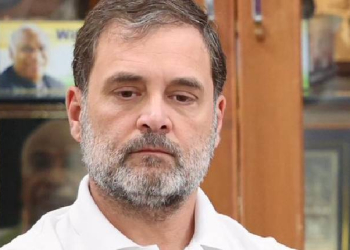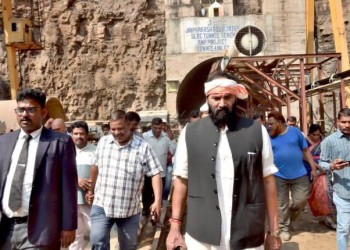New Delhi: The Cabinet Committee on Economic Affairs (CCEA), chaired by Prime Minister Narendra Modi, on Thursday approved the scheme on Green Energy Corridor (GEC) Phase-II for Intra-State Transmission System (InSTS) to help in achieving the target of 450 GW installed renewable energy (RE) capacity by 2030.
The scheme, which entails addition of approximately 10,750 circuit kilometres of transmission lines and approx 27,500 MVA transformation capacity of substations, will facilitate grid integration and power evacuation of approximately 20 GW of RE power projects in seven states – Gujarat, Himachal Pradesh, Karnataka, Kerala, Rajasthan, Tamil Nadu, and Uttar Pradesh.
The scheme is targeted to be set up with a total estimated cost of Rs.12,031.33 crore and Central Financial Assistance (CFA) at 33 per cent of the project cost i.e. Rs. 3,970.34 crore, a cabinet communique said.
The transmission systems will be created over a period of five years from Financial Year 2021-22 to 2025-26. The CFA will help in offsetting the intra-state transmission charges and thus, keep the power costs down. Thus, the government support will ultimately benefit the end users, citizens.
The scheme will also contribute to long-term energy security of the country and promote ecologically sustainable growth by reducing the carbon footprint. It will generate large direct and indirect employment opportunities for both skilled and unskilled personnel in power and other related sectors.
This scheme is in addition to GEC-Phase-I which is already under implementation in the states of Andhra Pradesh, Gujarat, Himachal Pradesh, Karnataka, Madhya Pradesh, Maharashtra, Rajasthan, and Tamil Nadu for grid integration and power evacuation of approx 24 GW of RE power and is expected to be completed by 2022.
The scheme is for the addition of 9,700 ckm of transmission lines and 22,600 MVA capacity of substations having estimated cost of transmission projects of Rs 10,141.68 crore with CFA of Rs 4,056.67 crore.
India has pledged at the global platforms to phase down coal and increase renewable energy share in its energy mix as part of its action plan to combat climate change.
(IANS)



















